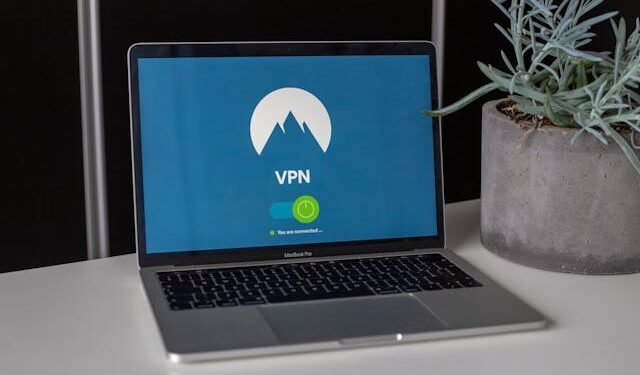Streaming movies has been part of our entertainment routine. It represents comfort and the availability of various films at your fingertips. However, the first question that comes to mind is whether one should use a VPN when streaming movies. We’re going to explain here why using a VPN will increase your experience regarding streaming, its drawbacks, and how one might make the correct choice of a VPN for their needs.
Contents
- 1 Benefits of Using a VPN for Streaming
- 1.1 1. Access to Geo-Restricted Content
- 1.2 Related posts
- 1.3 How Agentic AI is Redefining Automation in the UK
- 1.4 Why Every Traveler Needs a Global SIM Card for Seamless Connectivity
- 1.5 How to Find Free Proxy Servers in Laos: A Comprehensive Guide
- 1.6 Importance of Performance Testing of ERPs
- 1.7 How MICR Printers Streamline Operations in the Banking Sector
- 1.8 How Technology is Revolutionizing Aircraft Maintenance
- 1.9 A Guide On All You Need To Know About VY6YS
- 1.10 2. Enhanced Security Solution Online
- 1.11 3. Privacy from Internet Service Providers
- 1.12 4. Avoid Bandwidth Throttling
- 1.13 5. Protection from Legal Problems
- 1.14 6. Secure Public WiFi Streaming
- 2 Possible Disadvantages of Using a VPN for Streaming
Benefits of Using a VPN for Streaming
1. Access to Geo-Restricted Content
One of the main reasons to use a VPN for streaming is to get around geo-restrictions. Regional restrictions are usually put in place by most online streaming services due to licensing arrangements that blackout certain movies and television shows as a function of geographical location. You can unlock even more content you wouldn’t have seen otherwise by acquiring an IP address from another country through a VPN server. This, in particular, works in line with access to services such as BBC iPlayer, Hulu, and quite several Netflix libraries specific to some regions. So, now if you want a VPN F1 to watch formula one, you can trust Surfshark, NordVPN, and ExpressVPN.
2. Enhanced Security Solution Online
Online security is becoming a significant hazard, especially if you like streaming movies. Without a VPN, you leave your internet traffic wide open and unprotected against the watching eyes of hackers and other malevolent users. A VPN disguises and secures the connection so that your IP address and browsing data will never sit unprotected before unwanted viewers. With this additional layer of safety, you can now watch all your favorite movies without the cyber threats looming on every page.
3. Privacy from Internet Service Providers
Any ISP can trace back all your activities on the Web, including services associated with streaming. It might collect your browsing history data and the movies you stream; it might be selling this information to interested advertisers as well. Using a VPN prevents your ISP from snooping around while you stream, ensuring that what you watch remains private.
4. Avoid Bandwidth Throttling
Streaming movies requires a great deal of bandwidth, and most ISPs throttle the bandwidth of their users to limit streaming speeds, especially during peak usage hours of the day. This may cause frustrating buffering and poor video quality. A VPN can get you around bandwidth throttling because it conceals your online activity from your ISP, allowing you to stream smoothly and without disruption at steady speeds.
5. Protection from Legal Problems
This can also expose someone to legal issues about the streaming of movies from unauthorized sources. Specifically, some websites and platforms host copyrighted material, and streaming or accessing such without the relevant licensing is forbidden in many countries. I am stressing again that this is highly not recommended; the prescription presented at this moment or through a VPN will add that extra layer of protection against possible legal issues by hiding one’s IP address and encrypting all activities online.
6. Secure Public WiFi Streaming
Public WiFi networks are suitable for movie streaming on the go, but they lack security features. They most often become the target of cyber-attacks. Streaming movies over them is thus very dangerous. A VPN secures your connection on public WiFi so that while using it, your data remains safe from hackers and other malicious actors.
Possible Disadvantages of Using a VPN for Streaming
1. Slow Internet Speed
One of the most common complaints concerning VPNs is that they speed down the internet. As far as latency is brought on by encrypting a connection and going through a VPN server, it will affect download speed and buffering. That being said, however, this can usually be circumvented with an excellent and fast VPN with minimal latency servers.
2. Compatibility Problems
Not all streaming devices can support VPN software in the first instance. Most VPNs provide apps for desktop and mobile devices, but some smart TVs and media boxes won’t get such support. In these cases, configuring a VPN on your router or using Smart DNS services could be a workaround.
3. Potential Account Termination
In most instances, accessing geo-restricted content via a VPN violates the streaming platforms’ terms of service. While the chance for an account termination may be low, it’s still one. Netflix and similar services have implemented detection ways to block this usage with VPNs; there is a further risk of temporary, sometimes permanent, suspension.


















